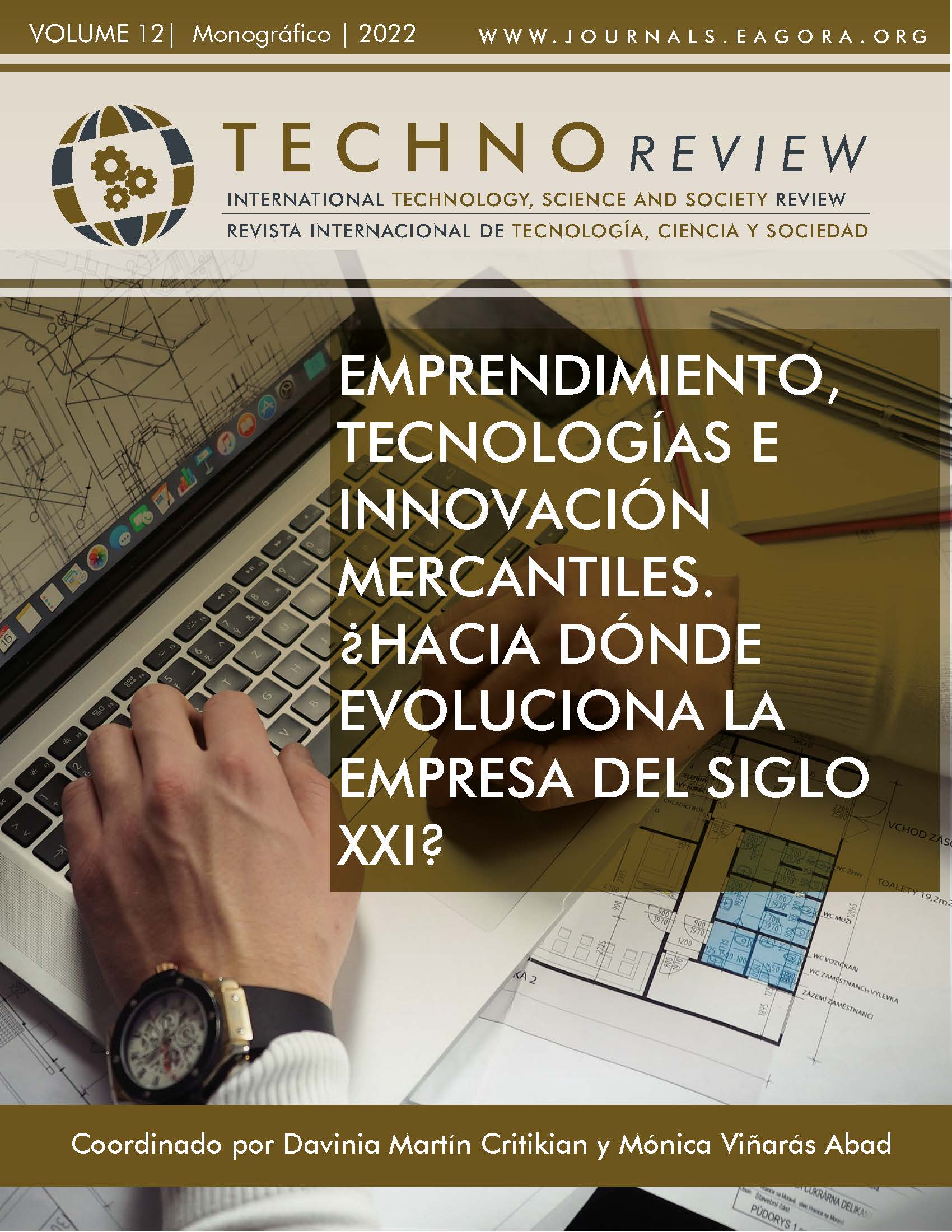Internet, smart devices and family, case study, UTPL Madrid students
DOI:
https://doi.org/10.37467/revtechno.v11.4474Keywords:
Internet, Cell phone, Family, Interaction, University, Students, CommunicationAbstract
The purpose of this research is to find out about the use of Internet and mobile telephony within the reality of university students. For its analysis a mixed methodology of exploratory character was applied, the techniques used, on the one hand, the qualitative one was applied by means of semi-structured interviews, the quantitative technique, on the other hand a survey was applied to 100% of the students of the university center, relatives and one or the other of the university authorities. The most frequent activities, when introducing the Internet and the cell phone are: family and work communication, entertainment and study.
References
Alfonzo, I. (2016). La Sociedad de la Información, Sociedad del Conocimiento y Sociedad del Aprendizaje. Referentes en torno a su formación. Bibliotecas Anales de Investigación.
Arriagada, I. (2002). “Cambios y desigualdad en las familias latinoamericanas”. División de Desarrollo Social. Revista de la CEPAL, 77, 143-161.
Bolognesi, A. (2013). Sitio web dinámico aplicado a las nuevas tecnologías móviles. Universidad de Aconcagua. https://bit.ly/3NJ3ov8
Bocock, R. (1995): El consumo, Madrid, Talasa.
Carpio-Fernández, M. V., García-Linares, M. C., Cerezo-Rusillo, M. T., & Casanova-Arias, P. F. (2021). Covid-19: uso y abuso de internet y teléfono móvil en estudiantes universitarios. International Journal of Developmental and Educational Psychology, 2(1), 107-116. https://doi.org/10.17060/ijodaep.2021.n1.v2.2123
Castells, M. (2006). La era de la información. Alianza.
Empantallados (2018). Informe sobre el Impacto de las pantallas en la vida familiar. Una radiografía del impacto de las pantallas en los hogares españoles. https://bit.ly/3B7lunW
Gaspar, S. (2015). Bases psicosociales del uso del smartphone en jóvenes: un análisis motivacional y cross-cultural [Tesis doctoral]. Universidad Complutense de Madrid. https://eprints.ucm.es/id/eprint/35447/
Gutiérrez, M. (2013). Los estilos de comunicación familiar y su relación con las conductas violentas de estudiantes del Colegio Saint Benedict. Universidad Estatal a Distancia.
Heidenreich, M. (2003). Die Debatte um die Wissensgesellschaft. In: Böschen, S., Schulz-Schaeffer, I. (eds) Wissenschaft in der Wissensgesellschaft. VS Verlag für Sozialwissenschaften, Wiesbaden. https://doi.org/10.1007/978-3-663-07783-1_2
Jiménez, S., & Farré, J. (2015). Adición a las nuevas tecnologías, la epidemia del siglo XXI. Singlatana.
Kraut, R., Patterson, M., Lundmark, V., Kiesler, S., Mukopadhyay, T., & Scherlis, W. (1998). Internet paradox. A social technology that reduces social involvement and psychological well-being? The American psychologist, 53(9), 1017-1031. https://doi.org/10.1037//0003-066x.53.9.1017
Laguna, M. (2013). Estudio sobre el uso de Internet y sus aplicaciones en el alumnado de último año de carrera de la Universidad de Alicante. [tesis doctoral]. Universidad de Alicante. https://bit.ly/2zfXxK9
Mantovani. C. M. C. A. (2006). Info-entretenimento na telefonia celular: informação, mobilidade e interação social em um novo espaço de fluxos. Dissertação. (Mestrado em Ciência da Informação)-Escola de Ciência da Informação, Universidade Federal de Minas Gerais, Belo Horizonte, Minas Gerais.
Márquez, I. (2018). Móviles 24/7: el teléfono móvil en la era de la hiperconectividad. Móviles, 24(7), 1-126.
The Mobile Economy (2022). El 5G se acelera a medida que la adopción de 4G comienza a declinar. https://www.gsma.com/mobileeconomy/
Pérez, G. (1994): Investigación cualitativa. Retos e interrogantes. La Muralla. https://bit.ly/2Y1wHzl
Ramírez, R. (2008). El teléfono móvil y la vida cotidiana. Análisis del caso de las personas mayores en la ciudad de Barcelona [Tesis doctoral]. Bellaterra. https://bit.ly/3IaPxwt
Rincón Torres, Gomez Meza, A. J., & Vásquez Mendoza, G. R. (2008). Fundamentos de las comunicaciones móviles. https://bit.ly/3OGOQ0c
Rueda, J. (2007). La Tecnología en la sociedad del siglo XXI: Albores de una nueva revolución industrial. Revista de Ciencias Sociales. https://bit.ly/3bQq4MH
Sánchez, I. (1995). Análisis De Redes Sociales e Historia: Una Metodología para el Estudio de Redes Clientelares. Universidad Complutense. https://eprints.ucm.es/id/eprint/4123/
Serres, M. (2014). Pulgarcita. Editorial Gedisa.
Winocur, R. (2009). Robinson Crusoe ya tiene celular. Siglo XXI.
Downloads
Published
How to Cite
Issue
Section
License
Those authors who publish in this journal accept the following terms:
- Authors will keep the moral right of the work and they will transfer the commercial rights.
- After 1 year from publication, the work shall thereafter be open access online on our website, but will retain copyright.
- In the event that the authors wish to assign an Creative Commons (CC) license, they may request it by writing to publishing@eagora.org







